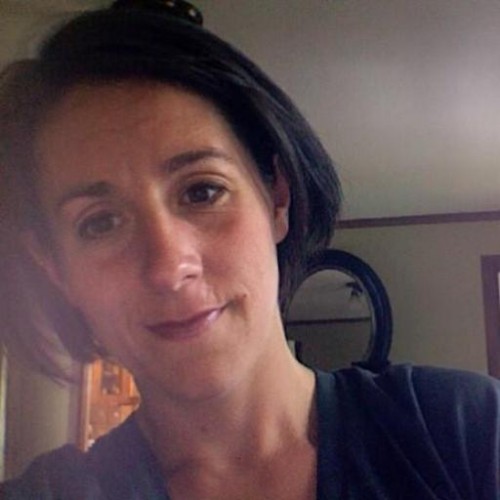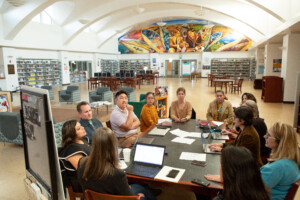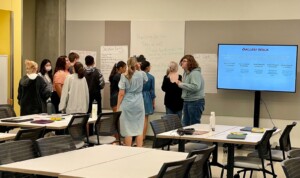Finding New Professional Development at edcamp

So often, professional learning days set aside during the school year fail to meet the needs of the staff and end up feeling like time wasted instead of a day of development. Still, every good educator is a lifelong learner and continually works to acquire new skills and strategies to will improve their practice. Finding the time and method in order to best accomplish this goal is the definite question.
So what better place to brainstorm around this issue than at edcamp? Yesterday, a small group of educators at edcamp Portland (#edcamppdx) put their heads together and devised a solution.
Why at edcamp?
The first edcamp ever was held in Philadelphia in May of 2010 and that same year 7 more popped up mostly on the East Coast. In 2011, the model caught on and a total of 51 edcamps were held throughout North America. The following year, edcamp went completely global with 125 events during 2012, with camps in places such as Santigoe, Stolkholm, ChristChurch and New Zealand, Hong Kong. This year, so far, over 100 edcamps have already happened and 100 more are planned.
Edcamp’s huge growth and wildfire like popularity definitely proves professional development directors can learn a lot about what works best in PD from this open conference, participant-driven, and so importantly, FREE model of professional learning. The universal problem of budget cuts and little funding draws teachers, administrators and education stakeholders to edcamps because it’s truly not often you actually “find such thing as a free lunch!” The high quality learning experience at edcamp can be life changing.
One great lesson from edcamp echoes the same mantra of education technology evangelists: learning does not have to stay in the classroom and end when the bell rings! This is as true for students as it is for teachers. Open source professional development, like edcamp, should completely transform what inservice days look like at every school.
What’s also so great about edcamp is that it’s completely voluntary so it becomes the place where the most passionate educators tend to float to the top. As a result, the conversations contain excitement they builds as the ideas begin to flow into great solutions.
Finding the Time
It is impossible to designate a specific time and make sure that it works as the best time for all the teachers in the in the district or even in the school. But with a tool like Google Hangouts finding a scheduled time is no longer problematic. PD sessions can happen on a Google Hangout on Air session, perhaps right after student dismissal… a time that could be convenient for a lot of teachers to tune in. Still, because GHO (Google Hangouts Online) can be recorded and saved to Youtube, anyone can watch or even re-watch it at a time that works for them, personally.
In addition to importance of flexibility, it was decided that consistency is just as important. If a school or district was to shift to providing teacher support and PD online, it needs to happen on a very consistent basis. If teachers can count on a 30 minute video being shared each Monday afternoon at 4, it is much more likely to become routine then if it just happened a few times over the semester. We realize bringing PD online and actually having it be effective will definitely take detailed planning and a true sense of commitment from the providers.
Finding the Format
In our discussion, we concluded that the not only should teachers know when to tune in, but they should have a clear picture of what they would be getting. Knowing what to expect helps any learner get into the right mindset to soak in the information being presented. Also, human brains don’t take very well to just being overwhelmed with information and talked at for long periods of time. To make this truly helpful, the format has to stay in a 20-30 minute time frame.
We titled our format “3-2-1… (buzzword yet to be determined.)” In about 20 minutes, two volunteer educators, will review 3 resources that can include apps, websites, digital tools or articles. Next, 2 lesson plan ideas, teaching strategies or cool examples of projects the teachers have used or seen their peers use. To wrap it up, the PD hosts can end with 1 reflective question for their audience, to try and keep it at the front of everyone’s minds throughout the coming week, sharing a Padlet wall or similar crowd sourcing tool so teachers could share their ideas during the following days.
The tools, ideas and questions will all center around the previously determined theme for the Hangout. The themes will start with some general topics that can apply to teachers from all levels in K-12 like “communicating with your parents,” “classroom community builders” and “writing as a reflective practitioner.”
As the weeks pass, the hope is that enough teachers will take turns hosting a hangout, that the topics can become more specialized and geared toward specific subject and grade levels… having a few hangouts occurring about different topics each week, so the audience could chose to watch the one that best suits their personal needs.
Finding the Audience
In the discussion, we came up with a list of elements that could hopefully help engage other teachers:
-
consistency in timing and format
-
Humor should not be ignored. PD does not have to be dry.
-
Stay focused, be considerate of the audience willing to spend some time.
-
Give teachers the choice to not only watch, but participate as hosts.
-
Encourage community viewing. Suggest teachers gather together to watch after school could be a great community building activity, as well as sparking deeper thinking and creativity.
-
Host the Hangouts after being published on an easily accessible site so teachers can find them, if not able to watch it live.
Finding the Support
Great conversations and the sharing of these types of ideas is very typical at Edcamp! It is definitely the place to seek out and make it a priority to attend. Our conversation quickly transformed from just one district trying to 3 or 4 large districts in Oregon, collaborating, and creating this PD experience together. But when you have great minds in the room like Jennifer Scypinski, Corin Richards, Tony Irlbeck and Darren Hudgins, it is bound to end with a great plan!







0 Comments
Leave a Comment
Your email address will not be published. All fields are required.